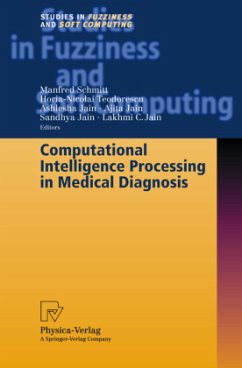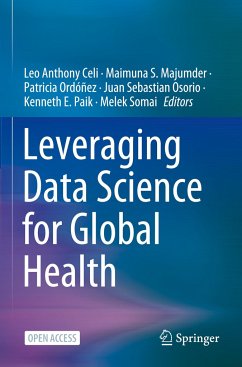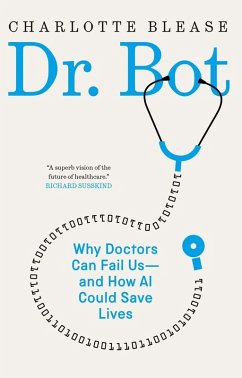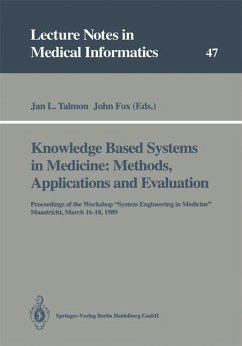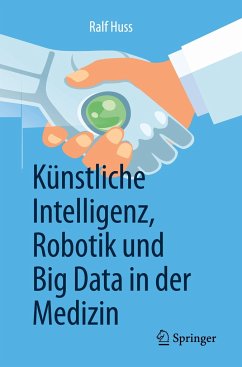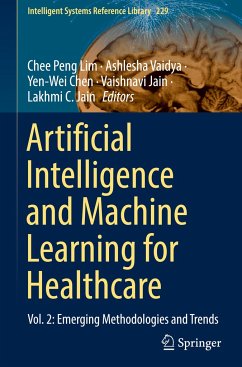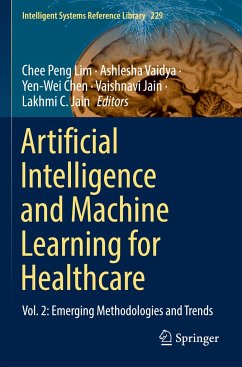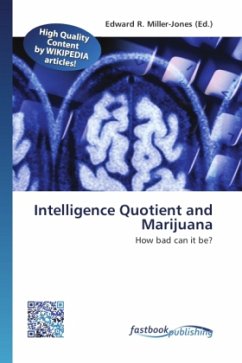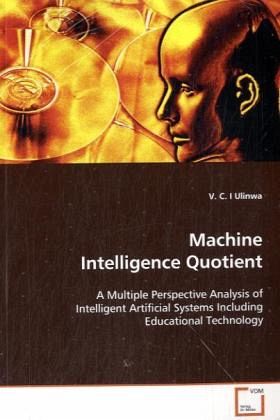
Machine Intelligence Quotient
A Multiple Perspective Analysis of Intelligent Artificial Systems Including Educational Technology
Versandkostenfrei!
Versandfertig in 6-10 Tagen
52,99 €
inkl. MwSt.

PAYBACK Punkte
26 °P sammeln!
Many of the problems that machine intelligence (MI)is expected to solve requireextensive knowledge about the world. In order to makeinformed decisions regarding MI,computing and policy professionals need to understandhow to measure intelligentmachines. Multiple perspectives, machineintelligence measurement, andfuzzy set theories were used to determine thecommonalities and differences among thecurrent diverse machine intelligence quotient (MIQ)theories and the means to synthesizethem. Three perspectives of MIM were synthesized: thetechnical perspective (T) focusedon features that are of no qual...
Many of the problems that machine intelligence (MI)
is expected to solve require
extensive knowledge about the world. In order to make
informed decisions regarding MI,
computing and policy professionals need to understand
how to measure intelligent
machines. Multiple perspectives, machine
intelligence measurement, and
fuzzy set theories were used to determine the
commonalities and differences among the
current diverse machine intelligence quotient (MIQ)
theories and the means to synthesize
them. Three perspectives of MIM were synthesized: the
technical perspective (T) focused
on features that are of no qualitative meaning to
humans; the organizational perspective
(O) focused on whether a machine violated any
regulation during the course of the
intelligent actions; and the personal perspective (P)
focused on subtle features parallel to
human intelligence. An MIQ calculus based on the
theoretic framework and three
scientific contexts in which a machine could be
tested was created. Recommendation was made to use
TOP to measure the intelligence of machines.
The MIQ tools can be used by computing
professionals to
measure and make informed decisions on MI.
is expected to solve require
extensive knowledge about the world. In order to make
informed decisions regarding MI,
computing and policy professionals need to understand
how to measure intelligent
machines. Multiple perspectives, machine
intelligence measurement, and
fuzzy set theories were used to determine the
commonalities and differences among the
current diverse machine intelligence quotient (MIQ)
theories and the means to synthesize
them. Three perspectives of MIM were synthesized: the
technical perspective (T) focused
on features that are of no qualitative meaning to
humans; the organizational perspective
(O) focused on whether a machine violated any
regulation during the course of the
intelligent actions; and the personal perspective (P)
focused on subtle features parallel to
human intelligence. An MIQ calculus based on the
theoretic framework and three
scientific contexts in which a machine could be
tested was created. Recommendation was made to use
TOP to measure the intelligence of machines.
The MIQ tools can be used by computing
professionals to
measure and make informed decisions on MI.



